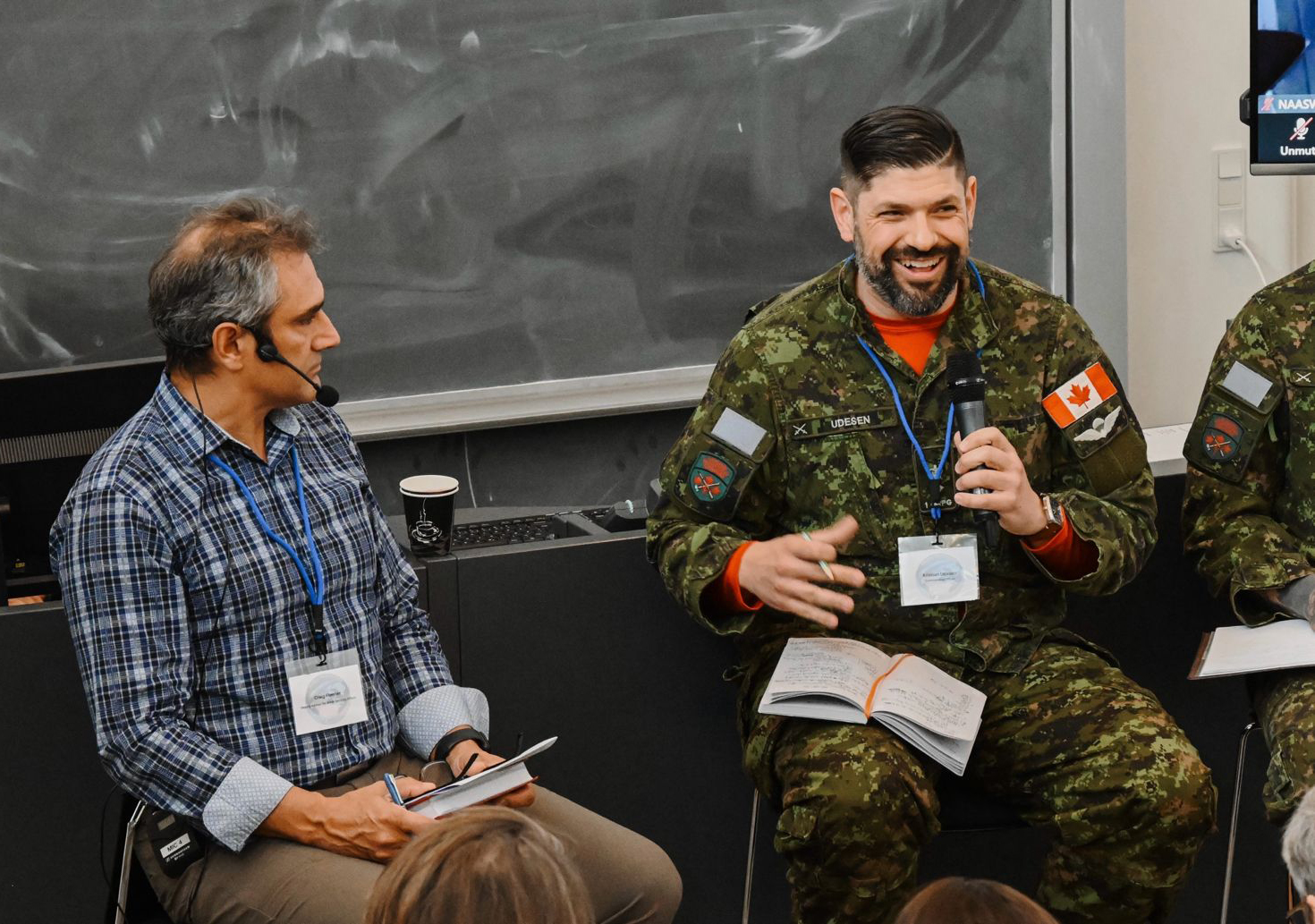
Born and raised eight miles north of the Arctic Circle in Fort Yukon, Alaska, Criag Fleener has dedicated his entire career to enhancing Arctic security at the local, tribal, state, federal, and international levels. Fleener’s extensive career across the Arctic demonstrates a passion for service and leadership, spanning from Alaska Air National Guard intelligence officer to wildlife biologist.
When asked about why Fleener joined the Stevens Center, he explained, “The Stevens Center is the perfect melding of all the things I’ve done. Whether it’s my work in tribal government and how the Ted Stevens Center has such an important focus on Indigenous people of the Arctic and how we want them to be a real part of our organization, that’s a big deal. It isn’t just lip service, its actual involvement.”
Growing up at the one-thousand-mile mark of the Yukon River—the furthest north point of the Yukon River—Fleener gained early experience working in tribal government. For over sixteen years, Fleener worked for his tribe, the Gwichyaa Zhee Gwich’in, on issues such as wildlife and fisheries management, environmental work, climate change research, and alternative energy. As executive director for the Council of Athabaskan Trial Governments, Fleener was an advocate for healthcare, education, and natural resource management.
Fleener was a permanent participant on the Arctic Council for nearly 10 years on the Gwich’in Council International during the early days of the forum. It was during these formative years of the Arctic Council that Fleener worked extensively across the working groups.
“I was amazed that there was such a high level place where Indigenous people had a voice,” explained Fleener. “Before the Arctic Council, it wasn’t very common to see ministers of foreign affairs or State Department representatives sitting alongside Indigenous leaders from small villages like mine. Connecting with Indigenous people across the Arctic was amazing.”
With a parallel military career, Fleener also brings 37 years of experience and leadership to the center with a combined 4 years enlisted with the Marine Corps and 33 years with the Alaska Air National Guard.
Fleener, who began his career as a wildlife biologist with a focus on moose management and endangered species, leveraged his scientific background and passion for the environment as a board member for the Alaska Board of Game, director of the Division of Subsistence for the State of Alaska, and later promoted to deputy commission at the Alaska Department of Fish and Game overseeing wildlife, subsistence, and habitat management. Fleener’s public service for the state of Alaska culminated with his time as Arctic policy advisor and the director of state and federal relations for the governor.
“I’ve conducted Arctic climate research looking at the impacts of climate change, primarily as it relates to habitat and wildlife and the subsequent impact on humans,” said Fleener. “So much of what we do at the Ted Stevens Center is security related outside of just hard security, so food security, community security, infrastructure security. Understanding the basic building blocks of Arctic security.”
On Joint Based Elmendorf-Richardson, Fleener served as the chief of staff for Lt. Gen. David Krumm, commander, Alaskan Command, U.S. Northern Command; commander, Eleventh Air Force, Pacific Air Forces; and commander, North American Aerospace Defense Command Region, North American Aerospace Defense Command.
“As chief of staff, I was able to leverage my relationship with the tribes around the state, connection to state government, and longstanding military career and connection to the National Guard,” said Fleener.
It was here that Fleener reconnected with retired Maj. Gen. Randy “Church” Kee, the newly appointed leader of the Ted Stevens Center. Soon after, Fleener joined the Stevens Center as deputy in 2022.
Fleener’s breadth and depth of senior-level Arctic policy experience from the Department of Defense, Arctic Council, State of Alaska, and tribal government make him a tremendous asset to the Ted Stevens Center for Arctic Security Studies. Today, as the deputy director of the Ted Stevens Center, Fleener uses that experience and skillset to build a diverse and knowledgeable team. As employee number three at the center, Fleener has been involved in every aspect of building the newest Department of Defense Regional Center.
When asked about the significance of the establishment of the Stevens Center here in Anchorage, Alaska, Fleener stated, “the U.S. wouldn’t be an Arctic nation without Alaska. The Ted Stevens Center being here in the North and being able to carry that message is very powerful.”
Courtesy photo | Craig Fleener, deputy director of the Ted Stevens Center in Arctic Security Studies (left), with a member of the Canadian Armed Forces (right). Born and raised eight miles north of the Arctic Circle in Fort Yukon, Alaska, Fleener has dedicated his entire career to enhancing Arctic security at the local, tribal, state, federal, and international levels. Fleener’s extensive career across the Arctic demonstrates a passion for service and leadership, spanning from Alaska Air National Guard intelligence officer to wildlife biologist. View Image Page
